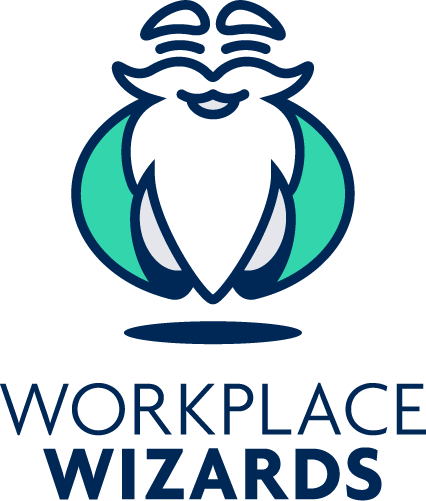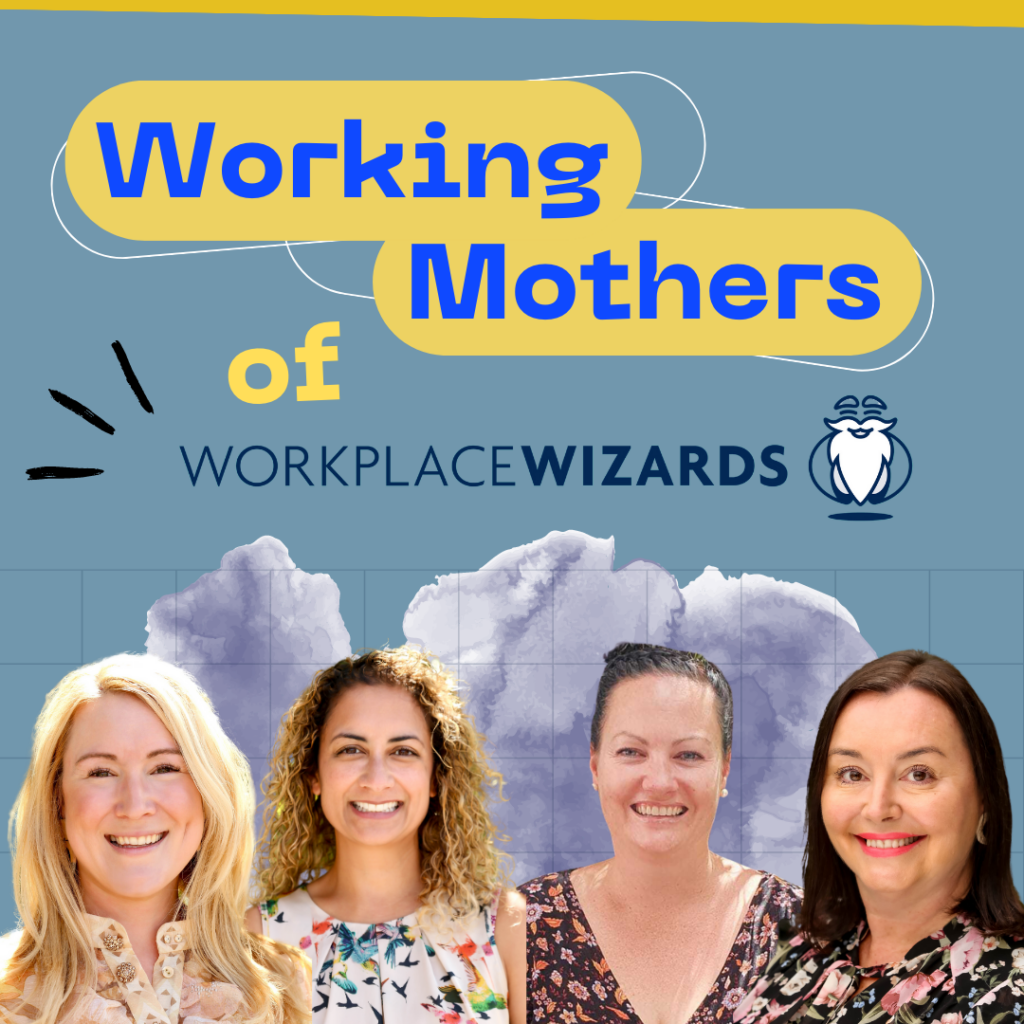Labor force statistics released by the Australian Bureau of Statistics in June 2022 showed that 74.7% of couple families with children under 15 have mothers who are employed, a significant increase from the statistics of previous years. Also on the rise however, is the ‘motherhood’ penalty – a phenomenon described as the impact that entry into parenthood can have on the careers and earnings of women, relative to men. A Treasury Working Paper released in March this year shows that this ‘motherhood penalty’ has increased substantially since the early 2000s; according to the report, in 2001, the motherhood penalty explained around half of all gender earnings inequality but by 2019, this
had increased to four-fifths.
This ‘penalty’ isn’t just financial however. It can appear in many forms – from workplace discrimination, lack of consideration for career progression, a lack of flexible workplace support and more. It’s not easy being a working mother, and we’ve still got a long way to go in ensuring workplaces are better equipped to help eliminate the ‘motherhood penalty’, in addition implementing to policies & practices to better support working parents.
Statistics and wage gap aside, entering or re-entering the workforce as a mother is a unique experience. We sat down with the working mothers of Workplace Wizards – Susanna Ritchie, Sandy Burriss, Lorraine Ross and Katie Brooks – to better understand their experiences and perspectives; what have they found challenging, what’s helped them juggle parenthood and workplace responsibilities and what advice they might have to offer others – including tips for workplaces wanting to better support any employees who have family commitments.
What are the challenges you've faced (and maybe continue to face) as a working mother? How do you manage these?
Susanna: Working mum guilt! I love my family very much, but I also love my work and want to do a really good job at it. There are often times when the two things compete for my attention – eg my daughter’s choir performance at school in the middle of the working day or a client meeting that needs to happen when I would normally not be in the office. I manage these as best I can by prioritising and working flexibly (ie often very early in the morning or late at night), but often I just have to remind myself that I can’t do it all, all the time, and that role modelling care, balance, hard work and commitment are really good things for both my children and the people I work with.
Sandy: Sick kids – not much you can do for that except to be communicative and take carer’s leave where needed. We are lucky to have access to this kind of leave.
Lorraine: One of the biggest challenges as a working mum is the juggle of life! It’s important to strike the right balance and be present in each moment – whether that is as an employee, a mum, wife, daughter or friend – and letting go of any guilt when that balance gets a little out of whack! The importance of making time to looking after yourself cannot be underestimated either – it is cliché’ but you can’t pour from an empty cup!
Katie: Time management is always my priority – I need to effectively manage my time between work, 4 children and home requirements.
How has your work life affected or informed your parenting life (and vice versa)?
Susanna: I’ve always been really committed to plain English writing and speaking (no “hitherto” or fancy Latin legal phrases at Wizards HQ!) and have found this has really helped me communicate with my children in a really simple and clear way (no baby talk in the Ritchie residence!). Vice versa – having young children has really strengthened my communication and conflict resolution skills at work. My daughter has taught me lots about clearly and simply expressing your needs without making another person become really defensive.
Sandy: I have to be super strict with my time, in order to make sure I give my best to work, family and myself – especially since I’m currently studying as well as working, Communication is also key. I have learned this both professionally and personally!
Lorraine: One of the most important lessons I continuously remind my kids of is to ‘be kind’. Working in HR we often manage situations where emotions are heightened – I take the same ‘be kind’ approach to these situations, ensuring that I demonstrate respect and empathy for others – how I expect my kids to treat others and be treated themselves.
Katie: I have always prided myself on my time management skills and an open and easy going nature. Having four children has enhanced these qualities and ensure that I have enough time for them as well as time to support Workplace Wizards consultants.
How can workplaces in Australia better support working mothers? Do you think there's enough support and if not, what sort of things do more workplaces (or maybe even society as a whole) need to consider?
Susanna: I’ve been the beneficiary of flexible working arrangements for a while now, and really do believe it has been central to me achieving the right balance for me in my working life. Accordingly, I think it’s fantastic that COVID has mainstreamed flexibility at work in a way that means part-time/flexible work is no longer only the domain of working mums, and I’m proud to say that at Workplace Wizards we are demonstrating how a high performing team can be made up of mostly or all part-time/flexible work. However, there are certainly many things workplaces can do to support gender equality further in Australia. That includes remembering that when a working parent takes time off to care for their children it is likely to only be temporary, and whilst they may not be attending your workplace they will still be thinking about their workplace, worrying about their careers and their career progression, and wondering how they can contribute to your organisation’s success even in their absence. Finding ways to help people who take time out of the workforce to remain connected and feel engaged is really valuable.
Sandy: At WW are we a flexible workplace and I am truly thankful for that. Since COVID I have enjoyed being in the office more (I am sociable!) yet that one day where I am just a bit closer to home to pick the kids up and manage household chores gives me some time back in my day that I truly appreciate.
Lorraine: I’m very fortunate to work for an organisation that supports flexibility, which of course is different for everyone. At Workplace Wizards, every one of us work part time and a hybrid mix of in the office, onsite with our clients and from home. For me, this allows me to have an early start each morning and I am then home with my boys after school. I have come across other businesses that don’t offer flexibility or hybrid working at all and from an attraction, recruitment and retention perspective, particularly, in this post pandemic stage, that approach is not ideal. It’s important to consider that there is no such thing as a ‘work life’ and a ‘home life’. There’s one wonderful, crazy and challenging life and if workplaces can adapt to and accommodate this for their employees, then everyone will benefit.
Katie: Whilst the pandemic created more opportunity for people to work from home, this has always been my normal. I believe that I have the absolute best of both worlds as I can manage my time to be there for my children before and after school, at sports days or on excursions, but I can also contribute to an incredible workplace and feel totally supported.
If you were working before you had children - what was it like, before and after having your first child and entering the workforce again
Susanna: There is a lot about my working life that hasn’t changed after having children. I still thrive working in a fast-paced, high performing environment. I also still love socialising at work, feeling connected and achieving impact for our clients which drives me to continue to put in the same effort, care and energy I always have. What has changed is what my typical work day looks like, the kinds of projects and work I take on now, and the sorts of roles that have lit me up the most. I can’t (and don’t want to) regularly stay back in the office into the evening like I did earlier in my career to meet litigation deadlines, but I can get up early, smash out lots of work while I am fresh and working most efficiently.
Sandy: My workplace at the time were very good. We had a transitioning to parental leave, reconnecting during parental leave, and transitioning back to work sessions so this made it easier and made me feel part of something, even though my identity as an employee had changed to working mother
Lorraine: I have always loved working, right from when I started at Maccas when I was 15. I thrive on being part of team and gain immense satisfaction for a job well done. Before children, there was less complexity, or perhaps, just different priorities in life to focus on – I didn’t have to consider anyone else but myself and could focus on my career. When I entered the workforce again, my priorities were more about working part time and less about progressing my career.
Katie: Prior to children, I worked full time in fast paced, top tier accounting and law firms, where I was challenged daily with deadlines, conflicting tasks and time management. While raising my children, I was approached by Susanna and Mark after working with them previously, to provide support for their new business. I was able to prioritise my children while working from home but could continue to support their business needs in a timely manner.
What's some advice you'd offer other working mothers or mothers who are considering entering/re-entering the workforce?
Susanna: As Paul McCartney says, “Do it now.” If you would like to re-enter the workforce, there really is nothing that should hold you back – including that voice in your head which says you can’t. You can. Working mums are not only great employees, managers and leaders – they are also great role models for their children.
Sandy: Never think that you are worse off for re-entering the workforce. You might be working to pay for childcare but there are so many more benefits: wellbeing, regaining your identity and contributing to you super.
Lorraine: My advice is to acknowledge that it can be challenging to ‘do and be everything’ so slow down, take a breath and look after yourself. If you’re anything like me, you will be a better mum and employee if you can get the balance right, whatever that looks like for you!
Katie: I would make sure you feel supported by your colleagues and try to prepare your week in advance to ensure your days run as smoothly as possible. It’s all in the planning…
Resources
If you’re an employer considering whether you could update your workplace policies and/or procedures to better support your employees and improve workplace culture – we can help! Give us a ring on 03 9087 6949 or email support @workplacewizards.com.au to chat to a consultant today. Whether it’s training, refining policies or reviewing employee contracts – we can help ensure peace of mind with specialist advice catered for your unique business need and goals.
For more information on the gender pay gap in Australia, check out the WGEA’s data page here, and their dedicated page of resources for businesses here.
You can find information about flexible work entitlements and flexible work arrangements at the Fair Work Ombudsman page here.



0 Comments Leave a comment
Comments are closed.